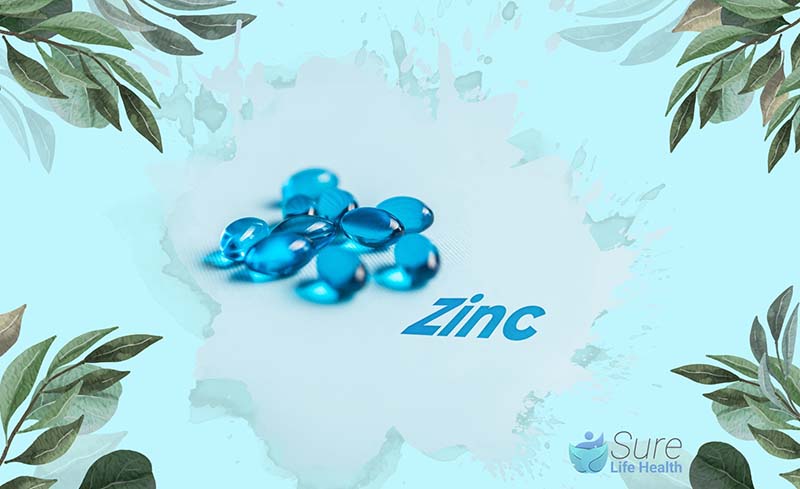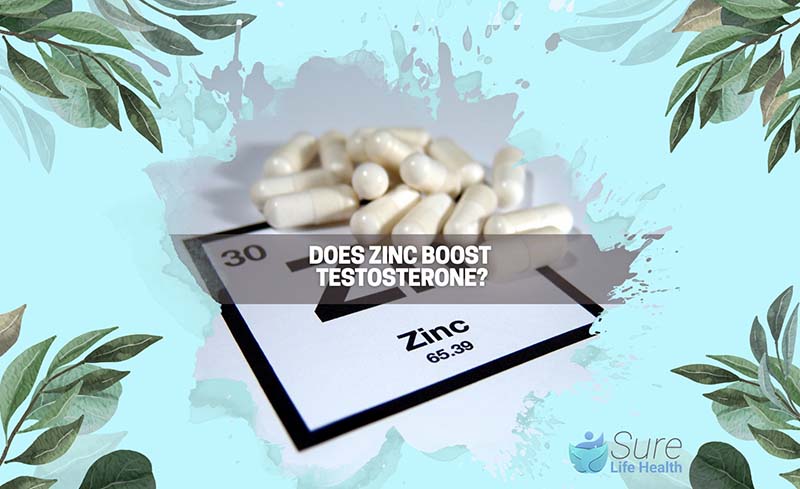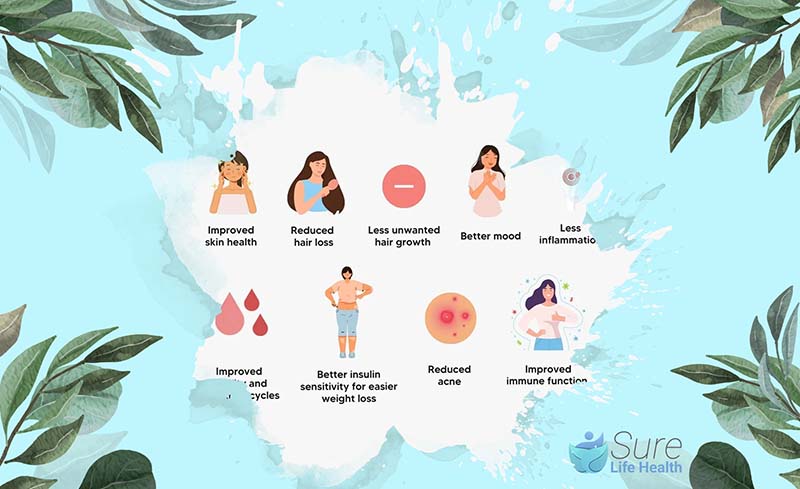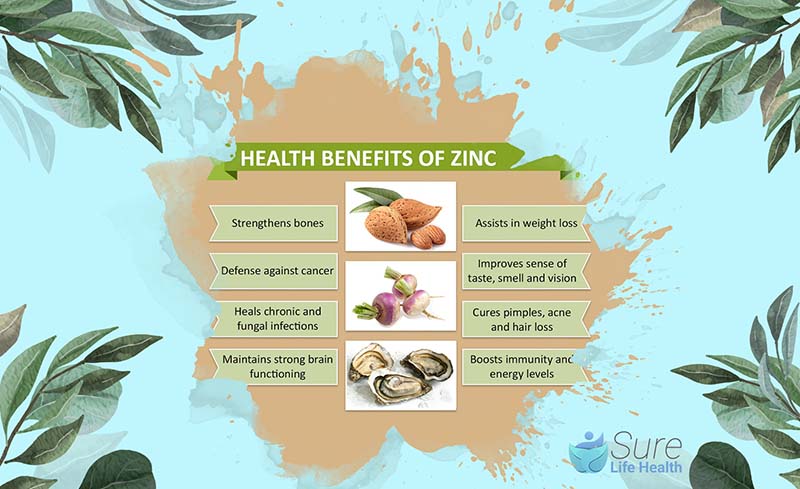If you’re focused on enhancing your semen volume, zinc could provide the solution you need. This essential mineral offers numerous health benefits, including bolstering your immune system and lowering the risk of prostate complications. It plays a pivotal role in regulating testosterone levels, which in turn, can significantly improve sperm quality.
For individuals experiencing low semen volume or fertility challenges, incorporating more zinc into your diet is essential.
To increase your sperm and semen volume, exploring premium supplements with a high zinc content is advisable. These supplements typically feature a carefully researched blend of ingredients designed to support this specific health goal.
Does Zinc Increase Sperm Volume?
Zinc is a crucial mineral that plays a vital role in various bodily functions, including the production of semen and the regulation of testosterone levels.
Low levels of zinc in the body can lead to a decrease in semen volume and sperm count, which may result in fertility issues for men. Studies have shown that supplementing with zinc can improve sperm quality and increase semen volume, potentially enhancing fertility and reproductive health.
Additionally, adding zinc-rich foods to your diet or taking zinc supplements can help improve sperm volume and overall sperm health.
Therefore, based on the scientific evidence available, it’s clear that zinc does indeed boost sperm volume.

Does Zinc Help With Testosterone?
Zinc plays a vital role in numerous bodily functions, including testosterone production. Research indicates that a deficiency in zinc can lead to low testosterone levels, while supplementing with zinc has been associated with increased testosterone levels in men.
Research shows that zinc plays a key role in keeping testosterone levels balanced in men, highlighting how important it is for managing this hormone. Also, taking extra zinc has helped improve sexual function and boost testosterone in postmenopausal women who don’t have enough zinc.
Therefore, the evidence supports the notion that zinc can indeed contribute to healthier testosterone levels, making it a valuable mineral for overall hormonal balance and well-being.

Are Zinc and Testosterone Related?
The link between zinc and testosterone is strongly supported by current research. Zinc is crucial for managing testosterone levels in men, with evidence showing that zinc supplements can elevate testosterone levels and improve hormonal health. A lack of zinc has been linked to reduced testosterone levels, highlighting the need for enough zinc to keep testosterone levels healthy and support male reproductive health.
Additionally, research points out that zinc is directly involved in the production of testosterone, underlining its importance for maintaining hormone balance and reproductive capabilities.
Furthermore, studies have shown that taking zinc supplements can boost sexual function, raise testosterone levels, and enhance the quality of sperm. This emphasizes zinc’s profound effect on testosterone and overall sexual health. Therefore, the evidence strongly suggests a positive correlation between zinc and testosterone, underscoring the necessity of sufficient zinc intake for optimal hormonal balance and reproductive function.

Other Benefits of Zinc on Men’s Health
Zinc is a fundamental mineral that plays a pivotal role in various biochemical processes within the human body.
For men, it offers a plethora of health benefits beyond its commonly recognized roles. Let’s delve into the four key benefits:
Increase Athletic Performance and Muscle Mass
Zinc is crucial for muscle protein synthesis and cellular growth, making it essential for building and maintaining muscle mass. It also aids in testosterone production, a hormone vital for muscle strength and growth.
Adequate zinc levels can improve muscle growth and repair, particularly when combined with resistance training.
Conversely, zinc deficiency has been associated with decreased muscle strength and endurance, highlighting its significance in muscle health.
Support Anti-inflammation
Acting as an antioxidant and anti-inflammatory agent, zinc helps combat oxidative stress and reduce inflammation in the body.
This is crucial for preventing chronic diseases associated with inflammation, including heart disease, diabetes, and cancer.
Research suggests that zinc can modulate the immune response, potentially mitigating chronic inflammation and its detrimental effects.
Manage Your Weight Loss Journey
While not a weight loss miracle mineral, zinc indirectly aids in weight management by influencing hormones like leptin, which regulate appetite and energy expenditure.
By impacting leptin levels, zinc can help curb hunger and potentially assist in weight management efforts.
Additionally, its role in promoting muscle repair and growth contributes to a healthier body composition, aiding in the maintenance of lean muscle mass during weight loss endeavors.
Improve Fertility
Crucial for male fertility, zinc plays a vital role in testicular development, sperm maturation, and testosterone production. Adequate zinc levels are essential for maintaining healthy sperm quality and motility, both pivotal for fertilization. Studies have demonstrated that zinc supplementation can enhance sperm quality in men with low zinc levels, thereby improving fertility.
Incorporating zinc-rich foods into your diet or considering zinc supplements can help reap these manifold benefits for men’s health and well-being.

Risks and Side Effects of Zinc
While zinc supplements are generally well tolerated, they can be associated with adverse side effects in some individuals. These may include:
- Nausea
- Vomiting
- Diarrhea
- Stomach pain
Exceeding the recommended dosage of 40 mg per day of elemental zinc can lead to symptoms such as fever, coughing, headache, and fatigue.
Additionally, zinc supplementation can interfere with the body’s ability to absorb copper, potentially resulting in a deficiency of this essential mineral over time. Moreover, zinc supplements have been shown to hinder the absorption of certain antibiotics, thereby reducing their effectiveness if taken simultaneously.
To minimize the risk of side effects, it’s crucial to adhere to the recommended dosage and avoid surpassing the tolerable upper limit of 40 mg per day, unless under medical supervision. Always consult with a healthcare professional before starting any new supplement regimen, especially if you have underlying health conditions or are taking medications.
How Much Zinc for Testosterone?
To promote optimal testosterone levels, experts recommend a daily intake of 40mg of zinc for men. This recommended dosage can be attained through various sources, including both dietary sources and supplements.
Foods rich in zinc, such as crab, beef, oysters, beans, pork, oatmeal, nuts, chicken, yogurt, fortified bread, and cereal, can help increase zinc levels naturally in the body.
For individuals with dietary restrictions or those requiring additional supplementation, zinc supplements can be a convenient option to augment zinc levels and potentially enhance testosterone production.
However, it’s essential to exercise caution when combining zinc intake from both dietary sources and supplements, as excessive zinc levels can lead to adverse side effects.
Conclusion
Zinc, a key mineral found in many foods and supplements, plays a vital role in improving semen quality and male fertility when taken correctly. For those looking for quicker results, sperm volume pills are an effective option, designed to increase sperm volume and potentially boost libido as well.
To enhance health and vitality, incorporating zinc-rich foods into your diet or taking supplements is recommended. It’s important to find the method that works best for you, and consulting a healthcare provider to determine the right daily zinc dosage is crucial.
In summary, whether through dietary adjustments or supplementation, prioritizing adequate zinc intake can significantly contribute to your overall well-being and reproductive health.
Be sure to explore more insightful blogs from Sure Life Health, where we continue to shed light on the latest trends and breakthroughs in health and wellness.
Professor Gaye Cunnane, PhD, MB, FRCPI
As the Director of Health and Wellbeing at RCPI, Professor Gaye Cunnane is at the helm of initiatives aimed at enhancing the health and well-being of RCPI Trainers and Trainees. Her role extends beyond administration; she is also a respected clinical professor of rheumatology and a consultant rheumatologist at Trinity College Dublin (TCD) and St James’s Hospital. Prof. Cunnane’s medical journey began at TCD, where she graduated from medical school, and her path has been marked by both clinical and academic excellence.
After completing her basic clinical training in medicine, she embarked on PhD studies at University College Dublin and St Vincent’s University Hospital. Her research during this period was focused on prognostic markers in early inflammatory arthritis, a project that saw her collaborating with esteemed universities across Europe, including in Switzerland, The Netherlands, the UK, and Sweden.
Prof. Cunnane’s career took her to the University of California, San Francisco, where she spent three years delving into research on new treatments for lupus. Her academic prowess led her to the University of Leeds in 2001 as a senior lecturer, before returning to Ireland in 2003 to assume her current roles. She has also served as the National Specialty Director for Rheumatology training in Ireland, Programme Director for Basic Specialist Training with RCPI, and as a past President of the Irish Society for Rheumatology.
PUBLISHED ARTICLES
“Rheumatic disease differentiation using immunoglobulin G sugar printing by high-density electrophoresis”: Published in The Journal of Rheumatology, this study reflects her in-depth investigation into rheumatic diseases.
“Benefits of exercise in patients with rheumatoid arthritis: a randomized controlled trial”: This research work, highlighting the positive impact of exercise on rheumatoid arthritis, underscores Prof. Cunnane’s dedication to practical, patient-centered research.
Additionally, Prof. Cunnane has made notable contributions to the Annals of the Rheumatic Diseases, discussing early referral, diagnosis, and treatment of rheumatoid arthritis. She has also been involved in a study on the NCBI platform investigating exercise benefits in rheumatoid arthritis patients.
Professor Gaye Cunnane’s career is a testament to her commitment to improving patient outcomes in rheumatology through rigorous research, clinical excellence, and dedicated teaching. Her work continues to influence the field of rheumatology, both in Ireland and internationally.

